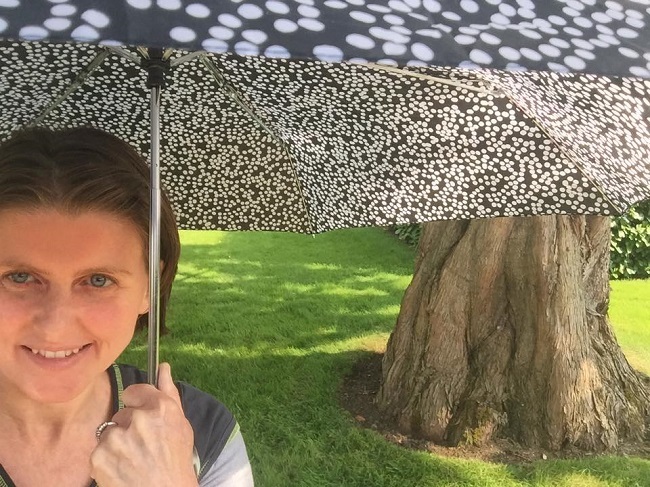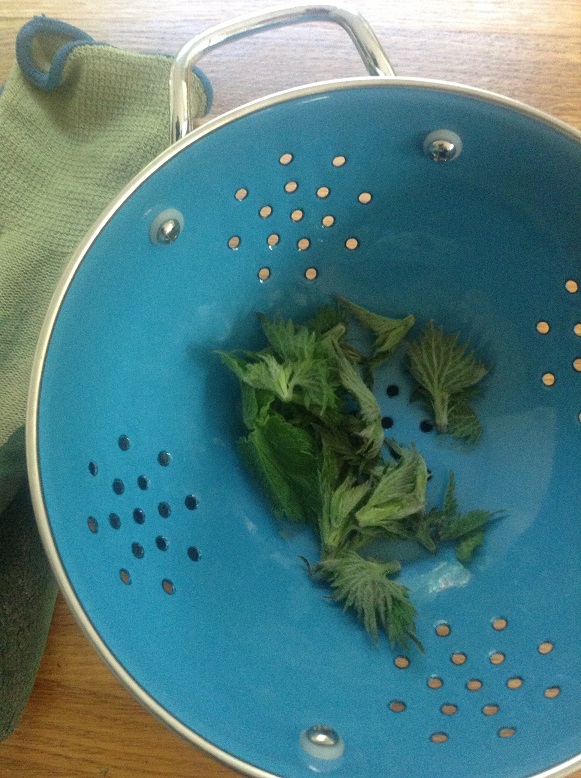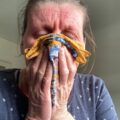If you suffer from hay fever every year and have tried all the remedies out there including antihistamines, herbal tinctures and nasal sprays, all to no avail, the idea that food could help is very appealing.
Here is a list of food that could help alleviate your hay fever symptoms:
- Natural, local honey – find a local supplier and try this, start eating it in March or April if you can but it can be hard to get stocks at this time of year due to bee and honey shortages. The idea is that bees pollinate all the local grasses and plants and so their honey contains really minute, tiny particles of the very allergen that causes your hay fever. It works a bit like immunotherapy but you would need to be eating about a tablespoon three times a day if you can. The more the better. Have it on your cereal, on your toast, in your yogurt and cook with it. Every little helps.
- Nettle tea – Particularly nettle tea which acts as a kind of anti congestant, reducing the amount of mucous and also anti-inflammatory. You can buy nettle tea in most supermarkets and health food stores but if you want to make it fresh, just pick the fresh top smaller, newer leaves from a nettle plant and steep in boiling water before drinking. There is no shortage of nettle plants so no excuses, wear gloves though, and the tea will not sting your mouth at all like it does when the hairs on the leaves come into contact with your skin.
- Cammomile tea – Also great for fighting hay fever as camomile tea is an antioxidant and antihistamine and also acts as a pretty effective anti-inflammatory agent.
- Lemon grass tea – Also know as fever grass has long been taken as a tea to aid congestion and the common cold and is recommended by those with hay fever. It should ease symptoms.
- Vitamin C – this is an easy one, just make sure you eat plenty of fruit and vegetables. Organic fruit and veg are packed full of antioxidants and vitamin C. Some vegetables contain carotenoids which are natural antioxidants which reduce inflammation in your airways and also boost your immune system. Carrots are the best know carotenoids but apricots, pumpkin, sweet potato and spinach are also good sources. You could also boost your immune system by taking a good quality vitamin C supplement.
- Omega 3 fatty acids – This includes oily fish like mackarel, sardines, salmon and also seeds like sunflower, pumpkin, flax and sesame seeds.
- Garlic – It has been know for years to help avoid the common cold but because of its immune boosting powers but garlic is also a decongestant and helps to alleviate the sniffling and sneezing. It is also an anti-inflammatory and a good source of quercetin, a natural antihistamine.
- Quercetin – Can be bought as a health supplement but it’s also a flavenoid, which give plants their colour and antioxidant qualities. It prevents the immune system from releasing histamines so it has an anti-inflammatory effect, reducing the sneezing, runny eyes, sniffling, congestion etc.
- Hot peppers Red peppers and chilli peppers are natural decongestants. They contain an active component called capsaicin which is probably where the alternative name capsicum comes from. Peppers help to open the nasal passages and help reduce the irritating congestion and sniffling and sneezing caused by pollen, grass and trees. Incorporateing red peppers and hot chilli peppers into your lunch and dinner could really help ease your symptoms.
- Onions – Normally associated with producing watering eyes when peeled, onions are great for fighting hay fever. They are a good source of quercetin, a natural antihistamine and anti-inflammatory proven to reduce symptoms in hay fever sufferers. Onions contain three times as much quercetin as kale and 10 times as much as broccoli. Eat as much fresh organic onion as you can, it’s all going to help. If you don’t have a date, try crunching raw onion for even better results but watch out for the onion breath.
I have been trying the local honey suggestion this year, but I never start eating it early enough in the season, nor do I remember to have some every day, but that idea does make sense. The bees pollinate the flowers, trees and grasses so the honey contains a tiny bit of the pollen, and so by eating some on a regular basis you desensitise your body to the pollen which is found where you live.
It fascinates me that some of us react so violently to such tiny harmless particles of pollen or spores in the air. The body is able to detect these air borne nasties, often invisible to the naked eye, and set up an attack to keep them out and flush them from our bodies. Why some of us have the problem and others do not is the question no one seems to be able to answer; finding a cure seems just as illusive.
Most sugestions from doctors and experts are useful but many are not. Is staying indoors with the windows shut really a solution for a normal happy, healthy life? Most of the advice is heart sinking and soul destroying. Drive with the windows up, don’t dry your clothes outdoors, avoid going outside in the evenings… These are things that are part of enjoying summer and I don’t find doing them makes my hay fever that much worse, but then mine has improved so much in recent years, probably due to my very natural and healthy diet. I sound smug don’t I, but don’t be fooled. I do love fresh, healthy food but rest assured I would be eating the naughty stuff if it didn’t make me so ill.
But maybe, just maybe, a diet which is rich in most of the above helps me cope so much better with hay fever. It really is so much better than it was. Try it, I promise you you’ll see an improvement.
I’d love to hear other peoples hay fever remedies or solutions. What have you tried that really helped?
References and further reading:
Your homespun hay fever remedies, BBC news.
How better diet beat suffering hay fever, The Daily Mail.













I am surprised she hasn’t included red onions, broccoli and apples which all contain quercetin which is a natural anti-histamine. These should be at the top of any foods to fight hayfever list. If you eat pineapple at the same time as any of these foods, then the bromelain contained in the pineapple helps the body absorb the quercetin in the other foods. Honey has never worked for me and it probably only works in your local area with local honey. So once you go out of your local area you meet different pollen. If you don’t move around much, it’s worth a go – lots of people say it works for them. Other things that help which are drug-free are Butterbur – go to butterbur.co.uk for advice on the best type to get, Qu-Chi acupressure band – some good results for this, Nasaleze and my own product (I hope you don’t mind me plugging it) HayMax. the last 2 are Ok during pregnancy, too.
Hi Max. Thanks for the post. You clearly know your hayfever foods. I’m trying the honey thing this year with very local honey and it’s slightly better I think. But I agree, it has to be from bees that could sting you in your back garden or it wont work. I never knew that about red onions, brocolli or apples. Fantastic info. Thanks very much. And hey, don’t worry about the plug. I’ve never tried HayMax. What is it?
The foods you eat can definitely make a difference. I don’t know that I would say they can ‘cure’ you, but there are definitely some to avoid. I think there was a previous post on this. Also, take a look at nettle. Maybe try a nettle tea. And, the honey does work, but like Max said, it must be local (unprocessed). And, you need to eat a fair amount on a regular basis. Say a table spoon a couple times a day for several weeks, or even months if possible. It works somewhat similar to allergy shots, so it takes a while to build up the tolerance.
Since being a vegan for 3-4 years, I actually drink and eat three months regularly to help my immune system ready for hayfever system is these:
Lemongrass tea, (or fresh lemongrass added to water with lime and aloe vera)
Peppers (chilli (scotch bonnet peppers) added to food more to)
Clementines and Mangoes (High in Vitamins including C)
Red onions
plus i use garlic and ginger more in dishes including more raw salads.
Plus also I am using a Himalayan pink salt wash to clear out my sinus and gargle which is helping alot (though it is vile and takes alot to get used to).
I shall be sharing the post as its useful to everyone and keep up the good work Ruth
I’m also loving the pink himalyan salt. on the lookout for lemongrass tea.
its more than 6 years im living with allergic rhinitis, the only thing which works for is LEVOCET(its an 3rd gen anti histamine) and im totally dependent on it. i dont think allergic rhinitis has a permanent cure.
thus i have created a blog
i have made a new blog related to allergic rhinitis, here you can share your thoughts on symptoms and treatment
Fighting Allergic Rhinitis
Thanks for sharing the link to your blog and you’re right, rhinitus can be really frustrating to live with and it’s rarely treated very seriously by doctors. Mine is awful in hay fever season and also aggravated by dust, but sometimes, people just get it from outside triggers that you can’t really get away from. The only thing that might work would be if you could pinpoint what causes your rhinitus? Good luck with the blog.
I think the local honey is not very compromising.The bees pollen are glued by electrostatistically and glued ones are bigger particles unlike the pollens that triggers histamines.